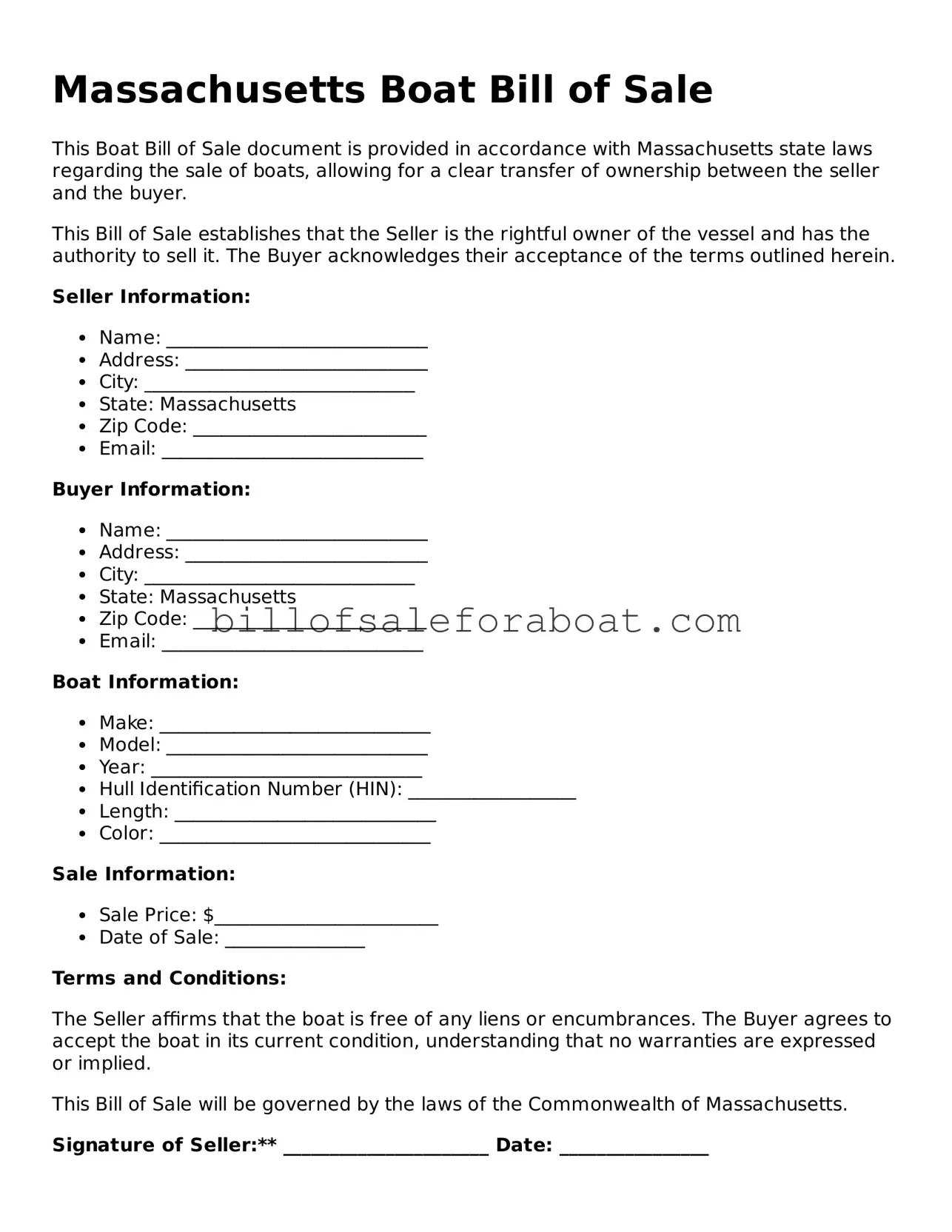Boat Bill of Sale Template for Massachusetts State
The Massachusetts Boat Bill of Sale form is a crucial document used to transfer ownership of a boat from one party to another. This form provides essential details about the transaction, including the buyer and seller's information, the boat's description, and the sale price. To ensure a smooth transfer, fill out the form by clicking the button below.
Open Boat Bill of Sale Now

Boat Bill of Sale Template for Massachusetts State
Open Boat Bill of Sale Now
Fast, simple form completion
Finish Boat Bill of Sale digitally in just minutes.
Open Boat Bill of Sale Now
or
Free PDF
